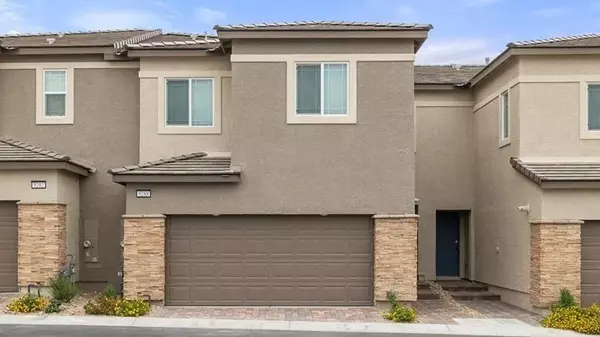Maryland Homeowners Claim Racism at Root of Neighbors’ Noise Complaints—How To Navigate Such Conflicts


Roman Studio / Getty Images
When Angela and Prince Floyd purchased their nearly 9,000-square-foot waterfront home in Accokeek, MD, for $700,000 in 2020, they looked forward to hosting big cookouts with their five kids and extended family members.
Yet their revelry soon invited unwelcome visitors in the form of police officers at their front door. The police came because neighbors were complaining about the noise.
From June 2020 to June 2023, over the course of 11 parties—for celebrations such as graduation, Father’s Day, Christmas, and a cousin’s outdoor wedding—police reportedly logged 41 calls for service at the Floyds’ home. Officers showed up on their doorstep 24 times to address illegal fireworks, food trucks, and busloads of people flocking to the property and clogging the narrow streets.
The Floyds, who are Black, believed these complaints amounted to racism, claiming they never even got one simple courtesy call from their neighbors simply asking them to turn down the music.
They’ve reportedly filed a lawsuit in federal court, alleging their civil rights have been violated, with Prince Floyd telling the Washington Post, “It makes me feel threatened.”
Meanwhile, the neighbors insist this is a noise issue, not a race issue.
“It has nothing to do with them being Black,” replied Margaret Littlejohn, a neighbor who is also Black and whose fiancé is a defendant in the lawsuit. “It has to do with them not being good neighbors.”
Navigating the noisy neighbor problem
This feud highlights just how tricky it can be to navigate noise complaints with neighbors—especially when multiple races are in the mix.
“In multiracial neighborhoods, it can be difficult to start neighborly relationships because we don’t have practice creating multiracial friendships,” says attorney Mijha Godfrey, who’s also the founder of Jambo Books, a children’s book subscription service that features children of color as the main characters.
Conflict resolution experts say that probably the worst thing anyone can do when dealing with noise is to go straight to the cops.
“It’s important to note that calling the police as a first resort has been shown to escalate neighbor conflicts,” says Kimberly Best, a dispute resolution expert and founder of Best Conflict Solutions. “It’s akin to complaining to a boss before speaking directly with the person involved—an approach unlikely to be well-received. And while it may resolve the problem, it definitely won’t help the relationship.”
Instead, Best recommends assuming that the noisy neighbors have no idea they’re being disruptive. The key is to approach the situation with empathy, seeking understanding and resolution rather than confrontation.
“Don’t make the whole party the problem,” says Best. “Instead, voice the parts of the party that are the problem.” Is it the fireworks? The noise carrying on past 11 p.m.?
Problem solving would ideally involve finding a way for your neighbors to have their celebrations while respecting their neighbors’ need for quiet, like ending the festivities by a certain time.
How to prevent noise complaints from neighbors
This altercation is a good reminder for anyone who hopes to throw a party that the neighbors might overhear.
Ideally, in fact, “The best time to introduce yourself is before the noisy parties start,” Godfrey says.
Before you host a party, consider putting your neighbors on the invite list.
“Even if they don’t come, they are much less likely to call the police if they’ve been invited,” Godfrey says.
If you don’t want to invite them, at least give them a heads up, advises Nikki Beauchamp, associate broker at Sotheby’s International Realty in Manhattan.
Write a note to let them know what day and time your celebration will be starting, along with your phone number if they have any issues or complaints.
The earlier you establish a friendly rapport with your neighbors, the better, says Lee Davenport, strategic real estate adviser at Real Estate Bees.
“I had a Black client who purchased a home in a cul-de-sac that had no other people of color living there,” says Davenport. “My client and his wife introduced themselves to the neighbors, which was a good start.”
Months later, during the summer, his grandson stayed with them for a couple of weeks during summer break.
“One neighbor, peering out his window, was alarmed to see a young teenager wearing a hoodie and, in his words, ‘loitering’—and later confessed that his first mind was to call the police,” Davenport shares. “Thankfully that neighbor, having a rapport with the grandparents, called them as a warning first.”
If a friendly neighbor-to-neighbor approach doesn’t work, communicate with your managing agent or your HOA board, if you have one, Beauchamp says. Hiring a mediator could also be helpful if you can’t reach a resolution on your own.
“You don’t have to have the neighbor on speed dial every time they run out of flour, but neighbors should ideally have a cordial relationship with one another,” says Davenport.
Working out your issues and learning to live side by side peacefully is the ultimate goal.
“Most people want to be, and have, good neighbors,” says Godfrey. “Lean into that shared desire.”
Categories
Recent Posts











"My job is to find and attract mastery-based agents to the office, protect the culture, and make sure everyone is happy! "
